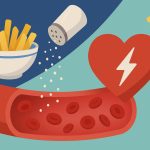Breakfast has long been called “the most important meal of the day,” and while nutrition science is constantly evolving, many studies suggest that regularly eating a balanced breakfast can significantly benefit your health, energy, and focus.
The Role of Breakfast in the Body
After a night’s sleep, your body has been fasting for several hours. Breakfast replenishes glucose levels, the body’s main source of energy, and provides essential nutrients needed for physical and mental performance.
Key Benefits of Eating Breakfast
- Boosts Energy Levels
Breakfast helps restore glycogen stores and kickstarts your metabolism, improving stamina for daily tasks. - Enhances Mental Performance
Eating in the morning supports better concentration, memory, and problem-solving skills, especially in students and workers. - Supports Healthy Weight Management
A balanced breakfast can reduce hunger later in the day, lowering the risk of overeating or choosing unhealthy snacks. - Provides Essential Nutrients
People who skip breakfast often miss out on important nutrients like fiber, vitamins, and minerals from whole grains, fruits, and dairy. - Stabilizes Blood Sugar Levels
Consuming a mix of protein, healthy fats, and complex carbohydrates helps maintain stable energy throughout the day.
Potential Downsides of Skipping Breakfast
- Lower energy and reduced productivity in the morning.
- Increased likelihood of overeating later in the day.
- Possible negative effects on mood and stress resilience.
- In children and adolescents, skipping breakfast has been linked to poorer academic performance.
Tips for a Healthy Breakfast
- Include protein (eggs, yogurt, nuts).
- Add fiber-rich carbohydrates (whole grain bread, oats, fruit).
- Incorporate healthy fats (avocado, seeds).
- Limit added sugars and highly processed foods.
Conclusion
While some eating patterns like intermittent fasting may suit certain people, most evidence supports the idea that a nutritious breakfast improves daily performance and supports long-term health. For many, starting the day with a balanced meal is a simple step toward better well-being.
Glossary
- Glucose – The primary sugar used by the body for energy.
- Glycogen – Stored form of glucose found in the liver and muscles.
- Metabolism – The process by which your body converts food into energy.
- Complex carbohydrates – Carbs that are digested slowly, providing lasting energy.
- Intermittent fasting – Eating pattern with alternating periods of eating and fasting.


